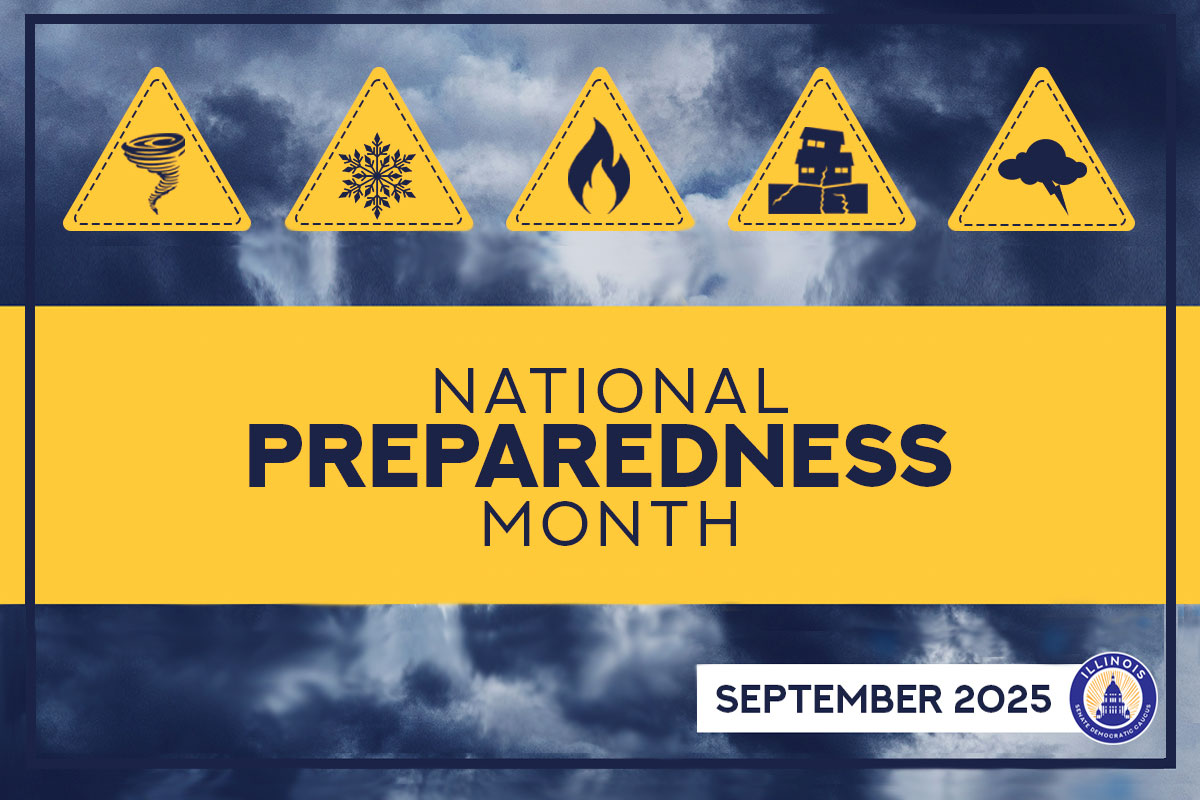 As we observe National Preparedness Month, it’s important for residents to prioritize their safety and readiness for emergencies. This month serves as a reminder to prepare for potential disasters and emergencies, ensuring individuals and families can effectively respond when unforeseen events occur. The Illinois Emergency Management Agency offers comprehensive resources and guidance through its website, ready.illinois.gov, to help residents prepare for various emergencies.
As we observe National Preparedness Month, it’s important for residents to prioritize their safety and readiness for emergencies. This month serves as a reminder to prepare for potential disasters and emergencies, ensuring individuals and families can effectively respond when unforeseen events occur. The Illinois Emergency Management Agency offers comprehensive resources and guidance through its website, ready.illinois.gov, to help residents prepare for various emergencies.
Understanding Preparedness
Preparedness involves planning, organizing and training to manage potential emergencies. IEMA encourages all residents to take proactive steps to safeguard themselves and their loved ones. Key components of preparedness include creating an emergency plan, building an emergency kit and staying informed about potential hazards.
Create an Emergency Plan
An effective emergency plan is crucial for ensuring everyone knows what to do in the event of an emergency or disaster. IEMA recommends families develop a plan that includes:
- Communication: Designate an out-of-town contact person whom everyone can reach if separated, and ensure all family members know how to contact this person.
- Meeting locations: Identify safe meeting places at home and outside the home where family members can gather if separated.
- Evacuation routes: Plan and practice multiple evacuation routes from your home and work to designated safe areas.
- Emergency contacts: List important phone numbers, including local emergency services, health care providers and utility companies.
Build an Emergency Kit
An emergency kit is essential for sustaining your family in the first 72 hours after a disaster. IEMA recommends assembling a kit with the following items:
- Basic supplies: Including nonperishable food, water (one gallon per person per day), a battery-powered or hand-crank radio and a flashlight with extra batteries.
- First aid kit: Besides essential first aid supplies, be sure to include prescription medication and any necessary medical equipment in your kit.
- Personal items: Pack personal hygiene items, important documents (such as identification or insurance papers) and any special needs items for infants, elderly family members or pets.
- Tools and supplies: Consider including a multi-tool, manual can opener and extra cash.
Stay Informed
Staying informed about potential threats is a key aspect of preparedness. IEMA advises residents to:
- Sign up for alerts: Register for local emergency alerts and notifications to receive timely information about hazards and emergencies.
- Follow local news: Monitor local news channels and weather reports for updates on emerging situations.
- Understand local hazards: Familiarize yourself with the types of hazards most likely to affect your area, such as severe weather, flooding or public health emergencies.
Tornado Preparedness
Illinois is especially vulnerable to tornadoes, with an average of 53 striking the state every year. As part of your emergency preparedness, IEMA advises residents to take specific precautions to stay safe during tornadoes. This includes identifying a safe place to shelter – ideally in a basement or an interior room on the lowest level – keeping an emergency kit stocked with food, water, a flashlight and essential medications and signing up for local weather alerts. Practicing tornado drills with family members and keeping a “go bag” ready helps minimize confusion and ensures quick action when a tornado warning is issued.
Tornado Watch vs. Tornado Warning
Understanding the difference between a tornado watch and a tornado warning is crucial for knowing how to properly respond during severe weather. A tornado watch is issued when weather conditions are favorable for tornadoes to develop. It typically covers a broad area and serves as a precaution, alerting people to be on the lookout for severe weather and to be prepared to take action if weather conditions worsen. During a tornado watch, residents should ensure they have a plan in place and stay informed through local weather updates.
A tornado warning is far more urgent, indicating a tornado has been sighted or detected by radar. When a warning is issued, it covers a more specific area and means immediate action is required. Residents should move to a designated safe area and avoid windows. Warnings may last a short time, but they save lives when heeded immediately and correctly.
National Preparedness Month is an opportunity for residents to review and enhance their emergency preparedness efforts. By creating a comprehensive emergency plan, assembling a well-stocked emergency kit and staying informed, individuals and families can ensure they are better equipped to handle any situation. For additional resources, including winter weather preparedness tips, visit ready.illinois.gov.













 © 2026 Illinois Senate Democratic Caucus
© 2026 Illinois Senate Democratic Caucus